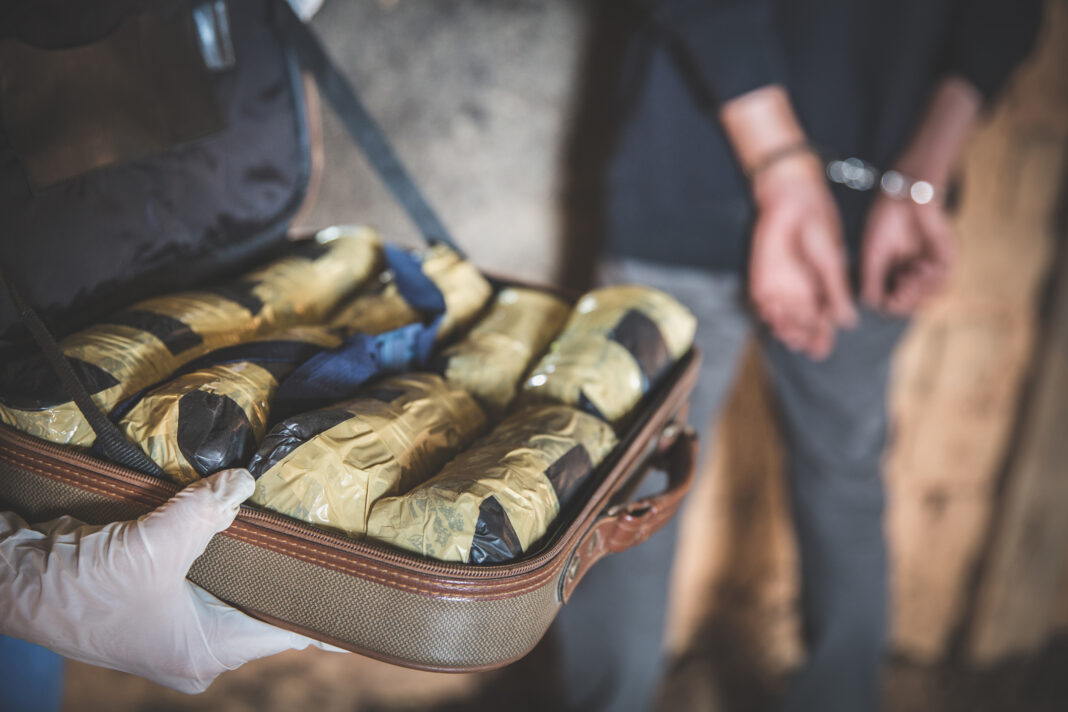You encounter the love of your life online, never meeting them in person. Or you get an email about an inheritance from a distant relative you didn’t know existed. Maybe it’s an attractive gig at a company you’ve never heard of before.
Whatever the initial beat of this crime, when you go to meet your one true love, show up to collect your inheritance or start your first day of work, there’s another step for an unforeseen reason. Also, whoever you meet wonders if you wouldn’t mind delivering a suitcase or package at the final destination since you’re going there anyway. With love/money/gainful employment awaiting, you think: Why not?
And then you’re stopped by the authorities and are detained for attempting to transport drugs or contraband.
Those are the beats of a blind mule scam.
A target is contacted online by a scammer who builds trust, presents a convincing story and then creates an enticing lure (often love and/or money). Next, there is an unforeseen problem. The target is sent to a third location, and asked to transport luggage as a favor.
Blind mule scams often affect the elderly because they are less likely to arouse suspicion at border crossings, checkpoints and traffic stops. When they are discovered to be transporting contraband, the consequences can be dire. Rodney Baldus, 70, is an American currently serving a 17-year sentence in Mozambique for drug trafficking. He had no idea.
Initially approached in an online phishing campaign that promised a $10.5 million inheritance from a distant Italian relative, Baldus was skeptical at first. But the money presented a lifeline out of financial distress, so when he was offered free airfare to Mozambique to finalize the paperwork, he went for it.
“He’s not the only victim who fell for this and was prosecuted for drug trafficking,” said a Secret Service officer stationed in South Africa on a recent episode of the “What the Hack with Adam Levin” podcast.
Baldus was set up as a blind mule to smuggle heroin into Italy via the infamous Southern Route which starts in Afghanistan, wends its way through Africa and ends in different European destinations.
“Numerous others also fell for exactly the same scam and were also prosecuted and are now sitting in Mozambique jails,” the What the Hack guest told us.
Blind mule scams pose a thorny issue for both the defense and prosecution sides of criminal cases.
The U.S. Supreme Court is currently considering the implications of legal defense blind mule scams, especially with regard to intent in cases of drug trafficking, since determining guilt can be so difficult.
How to avoid falling victim to a blind mule scam:
- Be skeptical of online communications from unknown parties: Money and romance are powerful lures. If something sounds too good to be true, it most likely is.
- Communicate with your friends and family: It’s easy to get lost in an expert scammer narrative. Sharing what’s going on can provide a much-needed reality check.
- Don’t agree to transport things: While it is low-risk and high-profit for scammers, if a shipment is intercepted, the “mule” is tagged for the crime.
- Don’t accept money from strangers: Money mules may receive bank deposits to launder money, placing them at risk for serious financial loss and penalties.










